Jews on the Loose
Fame is when a caricature of you requires no caption. Fame is when everyone understands it is you when only your first name is mentioned: Marilyn, Frank, Hillary, Michael (Jordan and Jackson). Fame is also when a mad person imagines that he is you, though this criterion, granted, is more difficult to establish. Groucho Marx surely qualifies on the first two criteria, and, though I don’t know of anyone who imagined that he was Groucho, more people have probably dressed up as him (it was George Gershwin’s favorite outfit at costume parties) than any other comic. Still, even great fame has its limits. Not long ago, when I called Barnes & Noble to order a copy of The Groucho Letters, the sales clerk inquired, “How do you spell Groucho?”
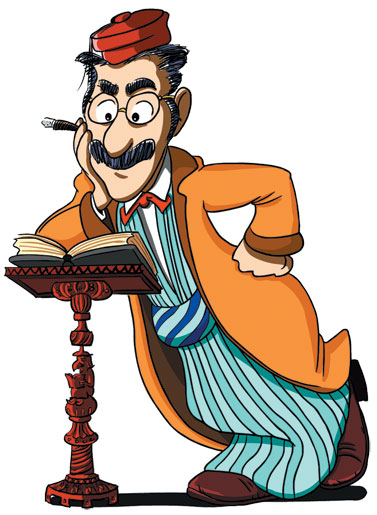
www.haggadahsrus.com.)
A Gallup Poll taken in 1941 asking people to name their 15 favorite comedians found the Marx Brothers finishing 13th, behind Red Skelton, Danny Kaye, Jimmy Durante, Arthur Godfrey, and others. While these comedians have now fallen from public interest, the Marx Brothers have held on. If anything, they have stepped higher up the slippery ladder of renown, and are today firmly embedded in that charmed circle of movie comics granted immortality that includes Charlie Chaplin, Buster Keaton, W. C. Fields, and Laurel & Hardy.
At first glance, the attraction behind the Marx Brothers is not self-evident. They offer three rather homely men who specialize in the creation of havoc. One doesn’t speak, but, honking a horn, wolfs after women, makes grotesque faces, drops silverware from his sleeve, extracts blowtorches, axes, and teacups from under his raincoat; he is a pit bull in a blond wig who does too-lengthy solo numbers on a harp. Another speaks, but in a preposterous Italian accent, wears the clothes of an organ grinder’s monkey, and plays a fast piano, occasionally shooting the keys with his index finger as if with a pistol. The third, the main man, wears greasepainted eyebrows and mustache, glasses, keeps a cigar going at all times, and walks like a caged gorilla with shpilkes. The speech of this third fellow is restricted to puns and put-downs, non sequiturs and sexual innuendos, all uttered in the tone of a relentless wise guy.
Antic, zany, madcap, anarchic, the Marx Brothers were successful first in vaudeville, then on the Broadway stage, and finally, most emphatically, in the movies. Their act resembled nothing so much as a comic strip brought to life. In fact, the names of the brothers were bestowed on them by a vaudeville comic named Art Fisher, who had been inspired by a popular series of comic strips by Gus Mager about monkey-like characters with names like Knocko, Sherlocko, and even Groucho. In order of birth, Leonard became Chico (originally Chicko) for his woman-chasing, Adolph became Harpo because he played the harp, and Julius became Groucho because of his innate glumness and cynicism. Milton, who played the straight man in the early days of the act, became Gummo, because of rubber-soled shoes he wore. Herbert, who replaced Gummo in 1925, became Zeppo, though it is not entirely clear why.
What the brothers did on stage and screen was far from adult and sometimes less adolescent than childish. Grown men in clownish costumes, they palavered and cavorted. Some of their humor was cruel, little of it victimless. If the Marx Brothers’ movies have a collective underlying message, it is, surely, that respectable life is a sham, a scam, not to put too fine a point on it, bullshit. Why did people enjoy this coarse cavalcade of uproarious disruption and denigration?
That the Marx family was in its origins German-Jewish, given the image of German Jews as irretrievably formal, is a touch surprising. The boys’ father, Samuel, was from Alsace, and their mother, Minnie, was the daughter of an entertainer from Dornum, Germany. Sam Marx was handsome, an inept tailor, and devoted to the skirt chase, the only trait he seems to have passed on to his sons. Minnie was the brains and motor force of the family. (An old joke: When the boy told his mother he was to play the Jewish husband in a school play, she instructed him to return to school to tell the teacher that he wanted a speaking part.) Her brother was Al Shean, of Gallagher & Shean, a famous vaudeville comedy team who eventually appeared in Ziegfeld Follies. A stage mother to the highest power, she ran her home like a raucous vaudeville boarding house and made sure show business was her sons’ fate.
With the exception of Zeppo, none of the brothers completed high school. Only Groucho, who departed school in the seventh grade, seems to have found this troubling. He had literary aspirations, not to say pretensions. In the 1920s, he took an occasional seat at the famous Algonquin Round Table. (Harpo, befriended by the critic Alexander Woollcott, found himself more comfortably seated there.) In the 1950s, Groucho entered into a correspondence and distant friendship with T. S. Eliot. His occasional magazine pieces resembled minor Robert Benchley or James Thurber or sub-par S. J. Perelman, though it all came out sounding like a fellow named Groucho:
A man in my position (horizontal at the moment) is likely to hear strange stories about himself. A few years ago they were saying I made a pig out of myself drinking champagne out of Miss Garbo’s slipper. Actually it was nothing but very weak punch.
Off-screen, Chico was said to be the most charming of the brothers, Harpo the most likeable—charming and likeable are not the same—Groucho, slightly wall-eyed, easily the most rebarbative. (Minnie called her middle son der Eifersüchtige, the jealous one.) Chico was a hopeless gambler and had often to call on his brothers to bail him out. Harpo was alone in having only one wife and was an unambiguously good father to four adopted children.
As Lee Siegel’s Groucho Marx: The Comedy of Existence, a book in Yale University Press’s Jewish Lives series, makes plain, Groucho was a man who could find a cloud in every silver lining. As a souvenir of his first sex, with a prostitute in Montreal, he came away with the clap. The only careful saver among the brothers, he was wiped out in the market crash of 1929. He was hard on each of his three wives. Toward the end of his life, Groucho, looking rather pathetic in a beret, was led about by a starlet-caregiver named Erin Fleming, who his son Arthur ended up taking to court after his father’s death, accusing her of stealing his father’s money. Groucho died in 1977 and made the mistake of doing so the same week as Elvis Presley, who crowded his final exit off the front pages.
The Marx Brothers made 13 movies, The Cocoanuts (1929) the first, Love Happy (1949) the last. The later movies, after A Night in Casablanca (1946), did less well at the box office, though Groucho, sensing the brothers act was growing stale, began to talk of retirement as early as 1939. Although Harpo and Chico tried, only Groucho went on to further show business success, first in radio, then in television, with his comedy quiz show You Bet Your Life.
One need only write four or five perfect poems, it has been said, to live forever as a poet. Might the same be said of comedy? Will four or five perfect scenes or even jokes do it? Almost everyone has one or another Marx Brothers comic bit engraved in memory. For many it is that teeming stateroom scene aboard ship in A Night at the Opera. For some it is Groucho’s rendition of “Hooray for Captain Spaulding, the African Explorer” (some people, you will recall, called him schnorrer). Or Groucho’s remarking of Margaret Dumont, in Duck Soup, that he had been fighting for her honor; she won’t. Others will remember one or another Groucho line: “One morning I shot an elephant in my pajamas. How he got in my pajamas, I don’t know”; or, from You Bet Your Life, his asking a tree surgeon contestant if he ever fell out of a patient. Everyone, possibly even young clerks at Barnes & Noble, knows his, “I do not want to belong to any club that will accept me as a member.”
The bits may loom larger than the movies themselves, a case of the parts being greater than the whole. Over three or so weeks I watched all of the Marx Brothers’ movies. The better ones have the participation of the comedy songwriters Harry Ruby and Bert Kalmar. Only one movie, Duck Soup, had the benefit of a superior director, Leo McCarey. The Cocoanuts and Animal Crackers, originally stage plays written by George S. Kaufman and Morrie Riskin (“No schmucks they,” Groucho in a high accolade called them in an interview in the indispensable The Marx Bros. Scrapbook), seem the best written, not least because Kaufman shared something of Groucho’s comic spirit. (A confirmed philanderer, Kaufman told Irving Berlin that he would have liked Berlin’s song “Always” better if it were retitled “Thursdays.”) Some prefer Monkey Business and Horse Feathers, the movies written by S. J. Perelman and Will Johnstone, though in later days Groucho denigrated Perelman, and vice versa. “They’re mercurial, devious, and ungrateful,” Perelman reports Herman Mankiewicz told him when Perelman took on the assignment of writing for the Marx Brothers. “I hate to depress you, but you’ll rue the day you ever took the assignment. This is an ordeal by fire. Make sure you wear your asbestos pants.”
Although aficionados tend to prefer the rougher cut movies made at Paramount over the smoother ones made at MGM under Irving Thalberg, the truth is that they all tend to wash into one another. Was Monkey Business the one about college football or was that Animal Crackers? (In fact it was Horse Feathers.) What is perhaps remarkable above all about the films is that in them the Marx Brothers are so utterly unsympathetic. One’s sympathies go out to Chaplin’s little tramp; to the sweet naivety of the hapless Buster Keaton; to the put-upon Oliver Hardy and the nonplussed Stan Laurel; even to W. C. Fields in his role as the besieged husband. Not so, not for a moment, does one feel the least sympathy with the Marx Brothers, whom one cannot imagine entertaining at one’s home without first calling in the fire department. They could, even on the screen, seem menacing, and menacing is the very reverse of charming.
In 1939, The New York Times theater critic Brooks Atkinson, during an era when the Times still employed men with two last names, interviewed Groucho. At the close of the interview, Atkinson remarked that the Marx Brothers “have covered about as much comic ground as three fantastic characters with separate personalities are able to do without bogging down in formula.” Tested for its truth quotient, that sentence scores in negative integers. The Marx Brothers’ comedy was nothing if not formulaic. One begins with three characters whose personalities couldn’t be more locked in, adds traditional dupes and stock villains and a minor love interest, and then lets loose the dogs. A pause in each movie occurs for a shoot-the-keys piano recital by Chico, and another for an unduly sensitive harp rendering by Harpo. (Groucho claimed to be bored blue by his brother’s harp playing.) In a 1946 interview in Photoplay, Gummo, by then a successful Hollywood agent, mentioned that his brothers were looking for a new script. “The only trouble,” he added, “is the stories all have plots.”

In a book called The Anatomy of Cinematic Humor, Thomas H. Jordan remarks that the Marx Brothers’ “films can be seen many times without losing their appeal, for there are so many gags and jokes that no one can possibly remember more than a small number.” Nor would one want to, since a high percentage of Groucho’s machine-gun-fire quips (“This man’s a cad—a yellow cad”) and Chico’s immigrant malapropisms (“From now on you and me is gonna be insufferable”) do not come off. Sometimes an amusing line will be followed by an empty pun, which undermines the earlier joke. In The Cocoanuts, for instance, Groucho shows Chico the map of a plot of land, noting the levies. “That’s the Jewish neighborhood?” Chico replies. Funny. A few moments later, Groucho curses Chico by saying, “May all your teeth have cavities,” to which he adds, “And remember, abscess makes the heart grow fonder.” Not funny. The slapstick changes—its most extravagant scene is the collapse of all the stage scenery in A Night at The Opera—but the chasing of blondes, the insulting of poor Margaret Dumont, the rat-a-tat-tat of Groucho embroidering clichés—“I am not hemmed to fit the touch of your skirt”—come to seem bits, mere shtichlach, little more.
This is, of course, a minority opinion. Opposed to it are numerous movie critics, celebrities, French surrealists, and most recently academics specializing in popular culture. Woody Allen thought what the Marx Brothers did was pure genius. (I myself much preferred Allen’s movies before he himself became a genius.) Salvador Dali, much taken with the Marx Brothers, called Harpo “the most fascinating and the most surrealistic character in Hollywood.” No less portentous a figure than Antonin Artaud, in a 1932 article in La Nouvelle Revue Française, made the claim that the Marx Brothers’ films were essentially surrealist poems, and chided American audiences of the movies for not going beyond laughter (never much of a problem for Artaud) to understand their deeper significance.
The significance imputed to the Marx Brothers’ movies is primarily cultural, but one wonders if it isn’t ultimately political. The claim is that these movies constitute, in effect, an attack on the American establishment, root (its traditions and mores) and branch (its major institutions). The movies mock land speculation, first-class ocean travel, capital-S society, art collecting and connoisseurship, higher education, the opera, diplomacy and war mongering, corporate shenanigans, psychiatry and the medical profession, the legal profession, the myth of the American west, thoroughbred racing, and more. Today, though, for better and worse, there is no establishment, and many of their targets have long gone out of business. This hasn’t stopped critics from pretending that the Marx Brothers’ movies carry the same useful antinomian punch as at the time of their original production. The briefest dip into the criticism of the Marx Brothers’ movies—Lee Siegel follows the academics in describing it straight-facedly as “Marxian” scholarship—leaves one, as Groucho might have said, reeling.
Groucho himself never bought into the deeper significance of his and his brothers’ act, and felt they were vastly over-analyzed. As for the attraction behind the movies, I wonder if Chico didn’t capture it best in two short sentences, when he wrote, “The reason people like to see us doing any tomfool thing that comes into our heads is quite simple. It’s because that’s how a normal person would like to act, once in a while.” There may not be much more to say, really, unless you are writing a book on the Marx Brothers, and Lee Siegel has, in the nature of the case, a vast deal more to say. Siegel is what in our day is called a culture critic, which means someone who takes on not merely the arts, but all of the culture in its social ramifications. Whether he is writing about his refusal to repay his student loan or about his admiration for Norman Mailer, Siegel’s prose tends to overheat, and his normal penchant is to dramatize his subjects. He calls Groucho Marx: The Comedy of Existence “a biocommentary,” in which he “weaves the outward facts of Groucho’s life into and through a story about the inward facts of Groucho’s life.” Early in the book Siegel makes the point that Groucho’s brother Chico had a larger penis than he did. Hang on, in other words, to your couch, the psychoanalyst will be with us in a moment. No scene in any of the Marx Brothers’ movies is, in Siegel’s reading, without meaning. The lovely line “Did someone call me schnorrer?” is really an expression of Groucho’s anxiety. Siegel is not even momentarily detained by the fact that this is a line in a song by Bert Kalmar and Harry Ruby.
“I do not want to belong to any club that will accept me as a member,” Groucho’s letter of resignation to the Friar’s Club, was, at least, certainly written by Groucho. But in Siegel’s microwaved prose, it becomes in “one of its countless dimensions . . . the obliteration not of the self who is making the joke, but of the existential convention, as it were, of having a self, an ego, to begin with.” Never one to leave bad enough alone, Siegel goes on:
If Groucho abolishes his own ego in one stroke with his fabled line—never mind, for a moment, that he also establishes his superior authenticity and power—then who is doing the abolishing? Who is Groucho Marx? He seems to exist in a totally negative space, in which his freedom is synonymous with the fact that he stands for nothing.
Bet you never thought of that.
Harpo’s repeated bit of forcing others to hold his raised leg is for Siegel no mere comic touch but “the hidden need to use others for our gratification, and the ceaseless urge to use other people to ‘get a leg up.’ It is also, as so much of the Marx Brothers’ comedy is, an act of self-emasculating aggression.” Reading passages like this, I kept seeing the You Bet Your Life duck come down as Groucho announced, “Say the over-inflated phrase and collect a hundred dollars.”
Without faulty parents psychoanalytic interpretation is, of course, out of business. Siegel finds them easily enough in Groucho’s family. Insufficient mother love is joined to a weak father to result in a son who “spent his career questioning just what manhood really is.” The ineffectual Sam Marx, in Siegel’s reading, “created sons who had a natural contempt for power, and sons who had a natural contempt for powerlessness.” The brothers, as a result, set out to “discredit the concept of fatherhood itself.” Siegel recounts Groucho’s father telling him that if he didn’t master pinochle he would never be a real man, which he reads as “an emasculating comment.” Yet one of the sweetest, gentlest essays Groucho ever wrote was about his father. It tells the story of his comic business failures but emphasizes his love for a man who brought in paid boosters to the audience for his sons’ vaudeville performances and became the family cook, specializing in kugels.
In his movie roles Groucho, for Lee Siegel, represents not an amusing attack on pretension but “the spirit of nihilism.” Siegel disputes the view that Woody Allen is Groucho’s descendant, for he feels that “Allen is simply too funny to be Groucho’s direct descendant.” Groucho is—and he is right about this—much darker. “No other comedians of the time,” Siegel writes, “come close to the wraithlike sociopath Groucho portrays in the Marx Brothers’ best films.” A more compelling reason, I should have thought, is that, in their respective movie roles, Groucho plays a shtunk, Allen a nebbish with psychoanalytic tone and self-hating touches added at no extra cost. Groucho’s heirs, I should have thought, are in the line of insult comedians, among them the unjustly forgotten Jack E. Leonard and Don Rickles.
For Lee Siegel, Groucho’s true heir is Lenny Bruce. “In the work of Groucho and his two brothers,” he writes, “the result is comedy sometimes so dark that it is not funny at all.” He brings up Bruce’s purported remark, shortly after the assassination of John F. Kennedy, that “Jackie hauled ass,” apparently to avoid being shot herself, a remark in bad enough taste but one that scarcely captures Lenny Bruce’s comedy.
As it happens, I was in the audience for Lenny Bruce’s performance in a theater—he had earlier lost his cabaret license—on the Lower East Side of New York the weekend following the Kennedy assassination. Bruce appeared without fanfare or even introduction from behind the curtain, sighed, and said, “Oswald, it’s a fucking rabbit’s name. And who hasn’t known a putz like Jack Ruby?” And then he did a bit about the reaction to the news of the assassination on the part of Vaughn Meader, a JFK impersonator, who understands that his career is now over (it was, in fact). Bruce went on from there to do a skit about a Jewish nightclub owner attempting to bribe a Puerto Rican busboy to service a putatively nymphomaniacal Sophie Tucker. (“I don’t care how much money you offer, Mr. Rosenberg,” the busboy says at the skit’s close, “I will not shtup her!”) All this is comedy of a very different order than the kind Groucho and his brothers ever performed or even thought of performing.
Groucho, as I mentioned earlier, exchanged letters and, when in London, had a dinner meeting with T. S. Eliot and his wife. The correspondence was light and, one gathers, was pleasing to both parties, allowing Groucho a connection with a hero of highbrow culture and Eliot one with a hero of popular culture. Lee Siegel sees it differently. He sees the relationship as, in the cant word of the day, fraught. He dissects a letter in which Eliot tells Groucho that he recently took his wife to see a rerun of The Marx Brothers Go West and finds Eliot’s letter at bottom “a triumph of genteel passive-aggression,” another of the great cant words of the age. Siegel doesn’t want to give Eliot credit for being a nice man who, late in life, came to like and admire Groucho, notwithstanding the infamous anti-Semitic lines in two of his poems, and his mention of undesirability of “free-thinking Jews,” decades earlier in After Strange Gods. Eliot was also properly appalled, indeed horrified, by the Holocaust.
How Jewish was Groucho? Given the aggressiveness of the Marx Brothers’ roles in the movies, there is, in the writing about them I have read, little in the way of anti-Semitism. Chico of course came on as a stagy Italian; Harpo was from another, thus far unidentified, planet. Despite his taking on such W. C. Fieldsian movie names as Rufus T. Firefly, Wolf J. Flywheel, and Dr. Hugo Z. Hackenbush, Groucho was recognizably, irretrievably, Jewish, a fact set in italics by his stage get-up of glasses, thick mustache, and fast, usually insulting talk. In its 1932 cover story on the Marx Brothers, Time magazine referred to him as a “prototypical Hebrew wiseguy.” When Groucho consulted Herman Mankiewicz on how to play one of his movie roles, Mankiewicz replied: “You’re a middle-aged Jew who picks up spit.” Yet Broadway and Hollywood both, from the early decades of the last century through the 1960s, were themselves so thoroughly Jewish that anti-Semitism was never much of an intramural problem. Nor did it appear to be an extramural one, for the Marx Brothers everywhere found ready acceptance.
Lee Siegel never mentions anti-Semitism in connection with the Marx Brothers, but he does attempt to position them in the tradition of Jewish humor. Jewish humor, in his view, is entwined with Jewish wisdom, which it surely often is. He recognizes that it is also heavily imbued with irony. And he wonders to what extent self-hatred is the basis of Jewish humor, noting that Freud is responsible for the notion that Jewish humor is about self-disparagement. He speculates upon whether at its heart Jewish humor isn’t the result of diaspora (no stand-up comics, true enough, in the Old Testament), alienation, and the condition generally of outsiderishness—a condition that breeds, simultaneously, an affinity for insult, a sense of self-debasement, and a feeling of superiority. “The status of the outsider,” Siegel writes, “is one place to begin to construct a definition of Jewish humor.” Yes, perhaps. Then again, Jewish humor is in the end probably no more than Jews being humorous, and they have found manifold ways of doing so, from subtle to slapstick, from the blatant to the philosophical, and, God willing, they will continue to do so.
In the end, Siegel is most interested in Groucho’s psyche, which, he concludes, he purged on film. These performances are, he writes, his “fullest disclosure of who he really was. They are the biographical gold.” I have been trying to think of how Groucho himself would reply to such a statement. I can imagine him riffing on the bit in The Treasure of the Sierra Madre where Walter Huston tells Humphrey Bogart and Tim Holt that what they’ve found is fool’s gold, but he just might shoot a sidelong glance and go into a version of his leering, loose-limbed, lovely Captain Spaulding dance. Did someone call him schnorrer?
Comments
You must log in to comment Log In
Suggested Reading
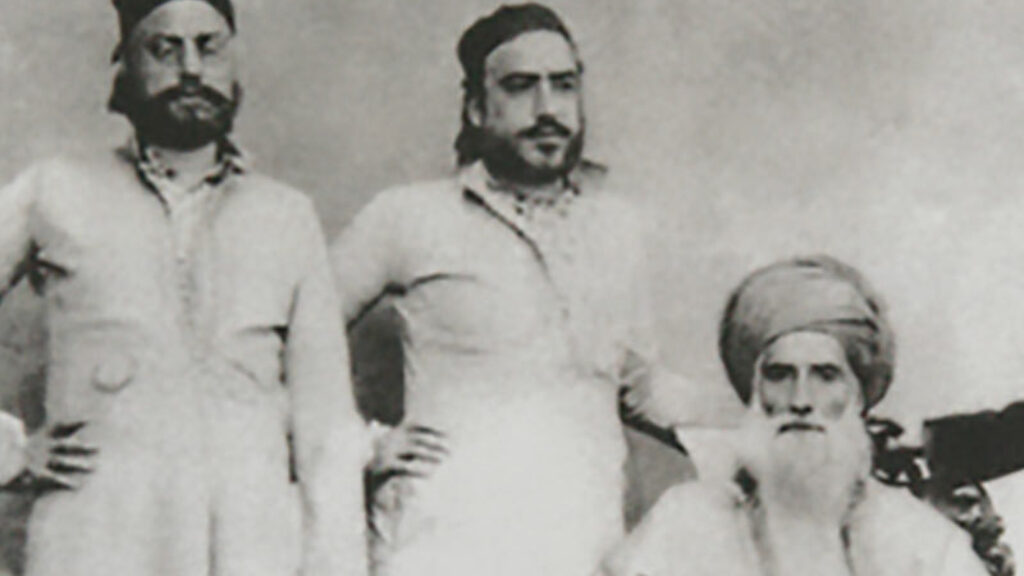
Crazy Rich Sephardim
For a time, Shanghai soared along with these unusual Ottoman Jewish émigrés, the Sassoons and the Kadoories.
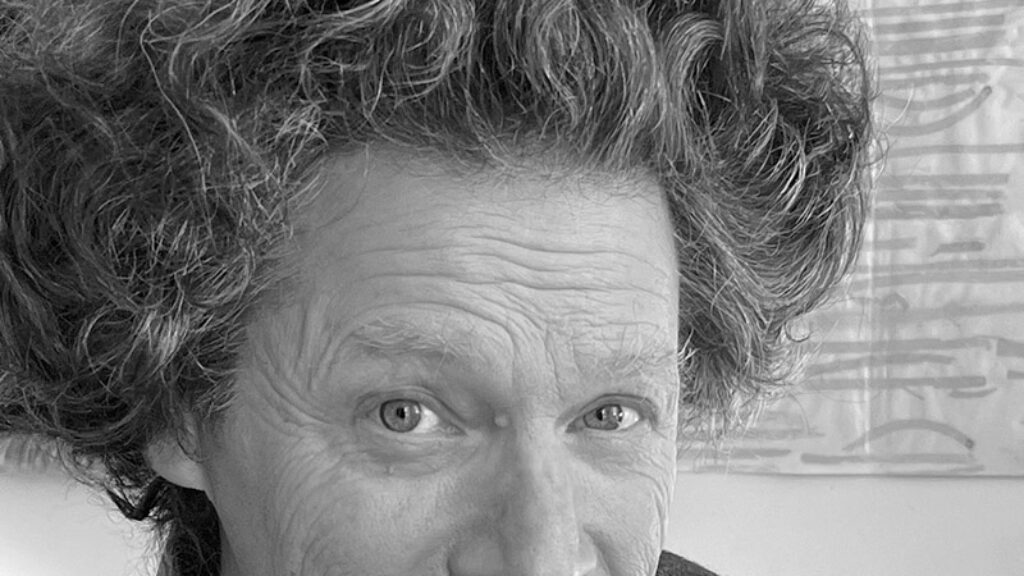
Tangled Truly
Letters of ink. Letters of the heart.
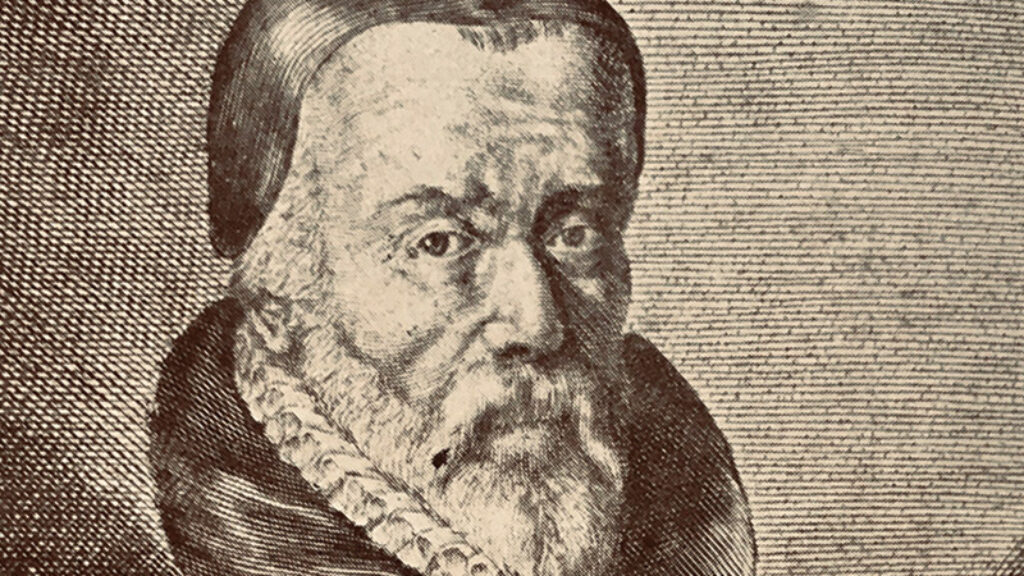
From King James to Koren
The new Koren Tanakh smoothly addresses some thorny questions of biblical translation, including this one: Are there dolphins in the Torah?
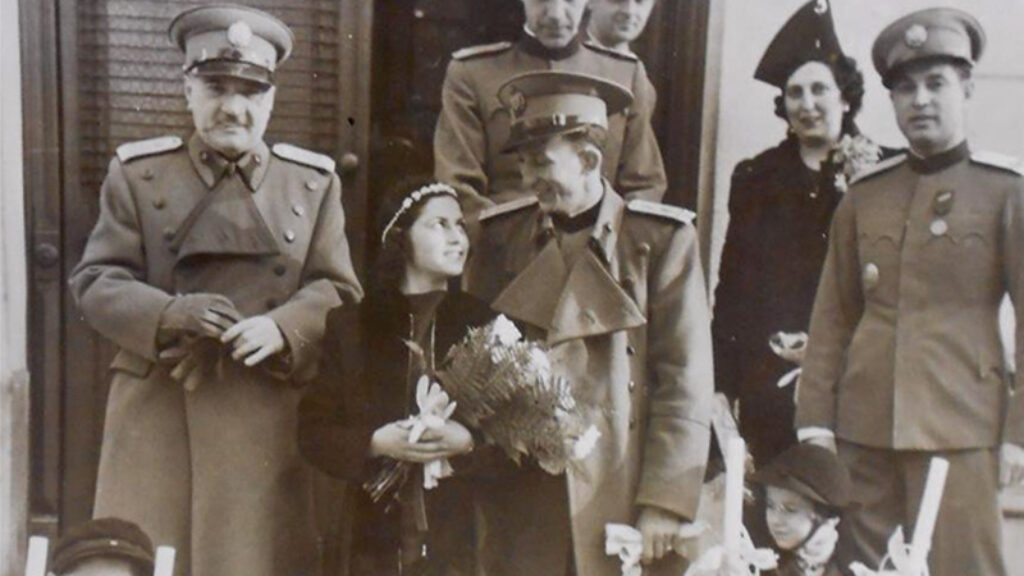
The Story They’ve Been Telling Themselves
“I wouldn’t turn on my beloved, my sacred husband,” Eva Panić firmly declared. Instead, she chose a brutal Yugoslavian prison–and abandoned her six-year-old daughter. David Grossman transforms their story into a disturbing yet beautiful novel.
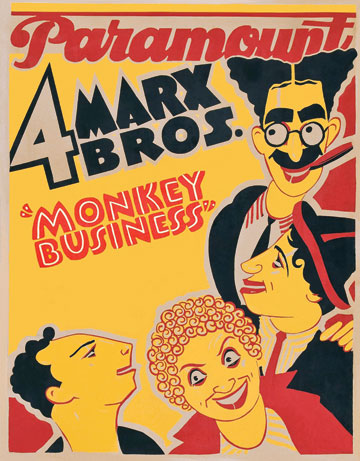
GJ Leonard, SFSU
Mr. Epstein, I love your prose, as I love Gladwell and Sedaris's prose, but from one alte kockeh to another you're too annoyed by this book, and you failed to mention something important about it. Groucho is no Shakespeare but they share one strange power. As Christopher Morley wrote of Shakespeare, "Reading him, you've noticed he's just like you. Everybody notices that." Everybody who writes about Groucho or Shakespeare winds up writing about themselves-- Mr. Siegel, and now you too. Listening to somebody else talk about Groucho or Shakespeare is unusually annoying because we alone understand them. What excites me about the book is something you should have mentioned: it's from Yale University Press. The material will, for once, have been edited, fact-checked. After a hundred years of fanzine junk written for deadline about Minnie's boys, there is almost as much nonsense written about them as about the Bard himself. This book will, I hope, give me some solid ground to stand on. BTW, don't know Siegel, never met him, no connection. And I can't wait to read your next essay. I'm hoping Dirda will grow into Epstein, someday, but he will never be able to make casual references to Lenny Bruce performances.
SkyePuppy
Duck Soup is my favorite. The singing, the dancing, the lemonade scene...
As for Siegel's psychoanalysis, sometimes a cigar is just a cigar.
Nitpick: I believe in the photo of Animal Crackers, Margaret Dumont is the lady in the dark dress, center, not the one in the white dress on the right.
allansmorton
It all comes down to, "Why a duck?"
sternie53
A terrific essay. But that is what one can always expect from Joseph Epstein who is, in my humble opinion, the finest essayist writing today. As for the Marx brothers, yes their movies were often funny in a madcap way, tummlers if you will (did I spell it right?) but they often left me wishing for less. Groucho's best work, I think, was as the host of "You Bet Your Life," where he displayed his fast on his feet wit and humor brilliantly.
By the way, what does "shtunk" mean? I don't have my Yiddish dictionary at hand.
Dexter Peabody
"...outsiderishness — a condition that breeds, simultaneously, an affinity for insult, a sense of self-debasement, and a feeling of superiority."
And a clarity of vision unavailable to insiders.
gwhepner
FAME AND THE BLANK CHECKS GIVEN BY VOX POPULI
Fame is when a caricature requires no caption and
you're widely known by your first name, like Groucho, Marilyn, and John and Paul and Frank,
and Hillary and Michael, answering the demand
for people to whom praise or blame is given just as cash is by a check that's blank.
It doesn't correlate with anything except desire by
the madding crowd to feel connected with some people who're considered by vox populi
to be important, and and re more than happy to rely
on others' judgment, giving for this to vox populi the monopoly.
About this situation those who choose grouch
seem as preposterous as Groucho, but unlike him hardly ever make us laugh,
though those who, paomed by the vox populi , say “Ouch!'
nearly often join the madding crowd by worshiping with it its golden calf.
[email protected]
hankidu
For a decidedly less analytical (albeit funnier approach, although, well, who's to say?), a version of Groucho's existence exists that includes his very being being thrown out of hotels from West Virginia to Wyoming, checkout his friend Irving Brecher's memoir. Irv supplied funny lines for his pal in Marx Bros "Go West" at "At The Circus." THE WICKED WIT OF THE WEST -- a non-chthonical nickname given Brech by Grouch -- can be enjoyed via B&N or Amazon or in funnier bookstores elsewhere. (Translated by the Italian publisher as "A PESCA CON GROUCHO" due to a fishing trip the two men took just before Julius Marx landed the "You Bet Your Life" gig that paid for the rest of his um, existence.)
tom blau
It seems to me that Groucho also influenced the character of Bugs Bunny, quintessential American smart aleck/wise guy, and maybe the Marx brothers influenced much of the Warner Bros. cartoon pantheon. I think that Groucho and Bugs must share credit for Leonard, Rickles, and Allen, as Prof. Epstein says, but also Sid Caeser (which means also Mel Brooks, Carl Reiner, Imogene Coca, Howard Morris), Jack Carter, Rodney Dangerfield, Jackie Mason, Shelley Berman, Mike Nichols and Elaine May, Jerry Seinfeld, and the sadly lesser-known Larry Storch and David Steinberg, and the great black comics and comic actors (like Richard Pryor, Eddie Murphy, Will Smith, Key & Peele ...). All this makes Groucho not only the fountainhead of American comedy but also an architect of American character (such as wise-cracking American soldiers in war movies or machine-gun theatrical dialogue in a play. There's no confusing a scene by Chekhov or Mamet, despite the influence of AC on DM.